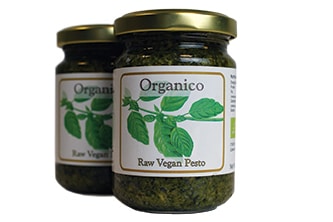Research shows that more customers than ever are choosing natural and organic beauty products for their bathroom cabinets. But as demand rises for hard-to-source raw materials such as ylang ylang and rosewood – can the environment sustain this desire for natural ingredients?
That was the question at the heart of Cosmetic Executive Women UK’s latest breakfast event, held in London on 9 June.
Two distinct parts of the industry were represented onstage – Simon Ford, from well-respected natural beauty brand Melvita – and Stephane Zwaans, global head of raw materials purchasing for global giant Givaudan.
Journalist Josephine Fairley chaired the debate for a room packed with women representing both mainstream and natural beauty brands.
Sustainable scents
The session kicked off with a short video introducing Givaudan’s Innovative Naturals programme. Through the programme it has forged partnerships with producers in Venezuela, Australia and Laos designed to ensure the sustainability of fragile supply chains while supporting local communities.
Both Ford and Zwaans agreed that responsible sourcing was of paramount importance to the industry, as well as to the environment.
“We work very closely with suppliers and can work not just to avoid chemicals, but to support the environment on a local level,” said Ford.
“By going direct to farmers for our ingredients there’s no middle man, and so the farmers get a regular outlet, and a fair price for their products.”
Perfume partnerships
Gaining the organic accreditation companies like Melvita demand for its ingredients costs money, and Ford spoke about how the brand supports farmers through the process.
“It’s about putting economic, incentives in place,” he said
“We say ‘work towards Ecocert accreditation and we’ll guarantee a certain price’”.
Zwaans spoke about how ensuring a sustainable supply chain of products was essential for the future of beauty – but also about how it responded to a genuine need in wider society.
“There’s a business reason for sustainable sourcing – but also other reasons – fairtrade and ethical reasons. More and more it’s part of our own journey. I have kids, and they’re very interested in ethical issues – it’s a no-brainer.”
“I heard Colin Firth on the radio explaining how shopping is now a political act. Every time we spend money we can support farmers in the Third World or support the oil industry. I know where I’d rather put my money.” – Jo Fairley
Paying the price for natural?
The panel established that natural and organic ingredients were becoming increasingly popular with consumers. So would Givaudan be interested in sourcing the world’s first all-natural perfume?
“There is ample space to make a 100 per cent natural fragrance – if customers ask for it. We’d certainly be able to do that,” said Zwaans.
While acknowledging that natural ingredients were central to developing new products, Zwaans talked about how synthetic fragrances were often complementary to natural ones – and ultimately brought down the price of the final product.
“We’ve tried to mimic natural ingredients in the lab, but we’re not quite there. But we need to cater for the £5 consumer as well as the £50 consumer,” he said.
“Now organic is less niche and more mainstream, there’s a wide range of price points available,” added Ford
“We’re an everyday brand – not luxury. We tend to get customers who come in wanting to replace synthetic products and finding out that ours are sometimes cheaper.”
“For us it’s a continual challenge, and we’re innovating to meet the expectation of modern consumers. This means investing in clinical trials to prove efficacy. We have a responsibility to move things forward.”
• Report by Matt Chittock



